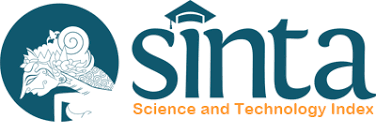Children's Anxiety At Children's Daycare Park
Keywords:
Child Anxiety, Daycare Park.Abstract
Child Care Park is one of the ways that many parents choose so that their children can continue to receive good education and care while parents are busy working. However, when children first adapt to the school environment, there are 2 child behaviors that appear, namely children can adapt or adjust and children experience anxiety in the form of fussy children, crying and not wanting to be left in the TPA. The purpose of the study was to identify the anxiety of children in day care.
Descriptive research design, survey approach. The population is all parents of children in the Bojonegoro City Child Care Park in 2022 as many as 123 people, a sample of 25 respondents was obtained by purposive sampling technique. The research variable is anxiety in children at the Daycare Park. The instrument uses a questionnaire. Data processing by editing, coding, scoring, tabulating and descriptive data analysis with percentages.
The results showed that most of the children in daycare did not experience anxiety, as many as 25 children (84%).
Children do not experience anxiety while in Daycare if the mother is able to respond to the child's attitude, is more flexible in applying discipline to the child and does not limit the child's desire to learn something he likes. Efforts in preventing and overcoming anxiety in children while in the Daycare Park are by providing information to mothers who should be able to keep their promises to their children.
References
Bizvibe. (2020). Top Daycare Companies in the World 2020. Retrieved 6 February 2022, from https://blog.bizvibe.com/blog/top-daycare-companies
Ministry of Education and Culture. (2019). Technical Instructions for Organizing Child Care Parks. Jakarta: Ministry of Education and Culture.
Ministry of Education and Culture. (2020). Early Childhood Education Statistics (PAUD). Jakarta: Ministry of Education and Culture of the Republic of Indonesia.
Ministry of Education and Culture. (2021). Early Childhood Education Statistics (PAUD). Jakarta: Ministry of Education and Culture of the Republic of Indonesia.
Ministry of Education and Culture. (2022). Landfill Delivery Progress Kec. Bojonegoro - Dapodikdasmen. Retrieved March 16, 2022, from https://dapo.kemdikbud.go.id/progres-paud/3/050516?view=tpa
Khadijah. (2018). Early Childhood Cognitive Development. Medan: Perdana Publishing.
Khadijah, & Armanila. (2017). Early Childhood Problems. Medan: Perdana Publishing.
Ningsih, S. (2019). Study of the Adaptation Period of Children When They First Enter School with Parenting Relationships. FKIP Muhammadiyah University of Ponorogo. Retrieved from http://seminar.umpo.ac.id/index.php/semnasdik2015/article/download/267/267
Nurrahman, R., Ardiyani, VM, & Rodiana, Y. (2018). The relationship between the parenting style of children entrusted to TPA aged 1-3 years with the anxiety level of mothers at TPA Samuphahita Malang City. Nursing News, 3. Retrieved from https://publikasi.unitri.ac.id/index.php/fikes/article/download/751/592
Suryana, D. (2018). Early childhood education programs. Padang: UNP Press.
Utami, W., A, ND, & Deni. (2011). Parental Knowledge About Immunization. Health Care: Journal of Health Research, 2(1), 195787.
Yusuf, A., Fitryasari, R., & Nihayati, HE (2018). Textbook of Mental Health Nursing. New York: Salemba Medika.

















